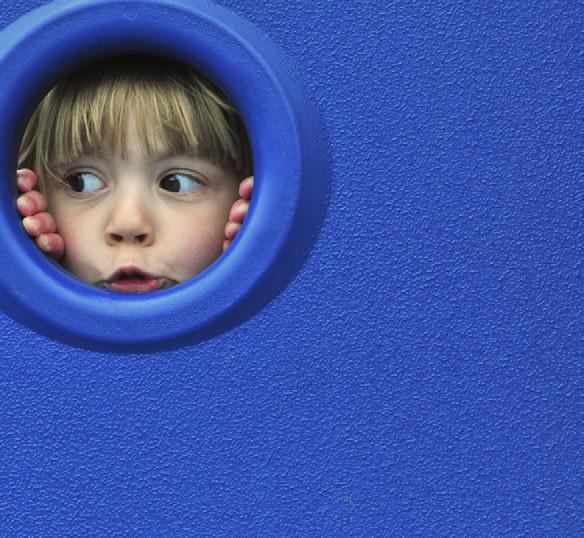
7 minute read
words&wounds:
Don’t get me wrong. I neither enjoy torturing my children, nor do I relish door slamming, but I do take my job as a parent crazy seriously and if that means I must endure door slamming through the tween and teen years when the law is laid down, I’ll happily put in earplugs and trudge forward.

Nowhere is this truer than in the battle of dating. The rule in our house is at 16 you can group date. Mr. Boy tried to start two years earlier than allowed and we busted him. Doors were slammed. However, with the Liz Claiborne Foundation reporting that “one in five teens in serious relationships are suffering some type of abuse by their partners” you can bet this is a battle I won’t stop fighting and he won’t win.
I’m not naïve. I know boys and girls like each other and I don’t for a minute expect that Mr. Boy won’t have a girlfriend at 14. I had my first boyfriend at 14. We ate lunch together, had ‘no you’re cuter’ conversations on the phone several times a week, met at a couple of church dances and danced the slow songs together, had our first kiss the last week of freshmen year at the spring picnic and my heart was broken when we moved away and I knew I’d never see him again. See back in pre-historic times, as my son likes to call my childhood, boyfriends didn’t necessarily equal dating. In my son’s world, however, girlfriends equal late night phone calls, countless text messages, numerous Facebook posts, lying to parents and setting up clandestine meetings at the mall with the girl, her best friend and the best friend’s boyfriend all so he could group date two years earlier than allowed. All of which equals busted in a house where his parents chaperone almost all his school and church events, sporadically check his email, randomly read incoming and outgoing text messages and check his Facebook page almost as often as he does.
In our house privacy is a privilege and when you get busted for breaking the rules, especially the dating rules, the penalty is mom and dad make it a point to be in all of your business putting a major cramp into your social life. Of course moving 16 hours away from the girl didn’t hurt either…at least that’s what I thought until I saw the latest text massage numbers on Mr. Boy’s cell phone: 8500 text and 250 picture messages. Now I realize that is not an all time high for many, but it is problematic to me. Especially after reading the 2008 American Bar Association report which states “text messaging, social networking sites and the Internet as a whole are the means of choice used to abuse and exert control in teen relationships” and because dating abuse is becoming both more pervasive and more hidden from parents. It was time for a serious heart to heart with Mr. Boy.
As parents, we like to think we know what’s going on in our homes and with our kids but, in the world of teen dating and abuse, parents are often the last ones to know. As evidenced in the 2009 Loveisrespect.org report which states only “7% of parents think tweens [youth ages 9 to 14] are doing more than kissing,” whereas “28% of tweens themselves say going all the way is a normal part of their relationship.” Furthermore, the American Bar Association for public education reports:
• 1 in 3 female teenagers in a dating relationship has feared for her physical safety.
• 1 in 5 teenagers in a serious relationship reports having been hit, slapped, or pushed by a partner.
• 27% of teenagers have been in dating relationships in which their partners called them names or put them down.
• 29% of girls who have been in a relationship said that they have been pressured to have sex or to engage in sexual activities that they did not want.
• 72% of teenagers who reported they'd been checked up on by a boyfriend or girlfriend 10 times per hour by email or text messaging did not tell their parents.
The numbers are scary, startling and true. I know because in a land before cell phones and unlimited Internet access I was in an abusive teen relationship. He didn’t text message me, he called… every night. I didn’t send picture messages of my outfits for approval, I was told to change when he arrived at my house. This happened so often I took to wearing one of the same five outfits every time I knew I was going to see him, because I knew it would avoid a fight. He didn’t stalk my Facebook page he went through my room piece by piece when I wasn’t home and sat at the restaurant I worked at for hours watching me.

It started when I was 17. We dated for almost two years during which time I went from a self-confident, opinionated, impassioned young woman to someone that questioned every thought. I became withdrawn, isolated and couldn’t look anyone in the eye. Around my friends he was funny, quick-witted and affectionate. In private and later even in public, he was controlling, demeaning, hurtful and used his wit and words as a way to put me in my place.
My parents and friends had no idea. I had no idea and I never said a word. I thought I was overreacting. He was at work because he loved me and wanted to spend all the time he could with me—even if it was only a ten minute break. He was proud of me and wanted me to look my best when we went out. He missed me which was why he called every day and got upset if I wasn’t there. I thought he was caring, romantic and loving. In reality, he was emotionally and verbally abusive and had prepped me perfectly for my abusive marriage. I’m proof of what the American Bar Association published in their 2008 findings that state, “violent relationships in adolescence have serious ramifications for victims putting them at higher risk for substance abuse, eating disorders, risky sexual behavior, suicide, and adult revictimization.” These same findings also state that “the severity of violence among intimate partners has been shown to be greater in cases where the pattern of violence has been established in adolescence.”
No one talked about dating violence when I was growing up. There was no curriculum in the schools, no conversations in health class and no conversations at home. Occasionally a girl came to school with a black eye given to her by a boyfriend, once in a while you’d hear the word rape whispered in the halls, but no one discussed it. Abuse of any kind was never discussed. The time has come to change that. Now is not the time to tout that they need their privacy or treat them like adults and expect they will be able to take care of themselves or know when they need to come to us. We can’t expect the school, church, or someone else to have the hard conversations with them and then be floored when it is our child in the ER or the Rape and Abuse Crisis Center.
In a letter to parents posted on the MADE [MOMS AND DADS FOR EDUCATION TO STOP TEEN DATING
ABUSE] website Liz Miller said “Perhaps the best advice for parents is to start talking about what constitutes a healthy, respectful relationship early on with your
Warning Signs
Does your child’s partner...
• Call them names or put them down in front of others
• Act extremely jealous when they talk to friends of the opposite sex, even when it is completely innocent
• Constantly check up on them, calling, texting, or IMing and demanding to know where they have been
• Lose their temper, maybe even get violent when they're mad
Resources:
Fargo-Moorhead Rape and Abuse Crisis Center at 701.293.7273 or www.raccfm.com
National Teen Dating Abuse Helpline 24 hours a day at 1.866.331.9474
Download the parent guide at www.loveisnotabuse.com child. Sharing the warning signs of teen dating abuse [see sidebar] with your child and saying, "If you know someone who's experiencing something like this, let's talk about it, let's talk about how you can be a good friend and help them stay safe." Please assure your child that they are not to blame for an unhealthy relationship, and that you are available to help them be safe and happy.”
As parents we must become informed, start the conversation and know what resources [see side bar] are available to us or our kids if we do suspect abuse. Most of all we have a responsibility to get in the business of our kids business. We must know what is going on and make sure our kids and their friends know we are there and know what is going on. It isn’t easy. I promise there will be voices raised, doors slammed and your kids will likely join Mr. Boy on Facebook as he laments about his overprotective, overbearing, pain in the backside parents. Just put in your earplugs, trudge forward, and smile as you join the Mean Mom club. Did you want a t-shirt?
Has your child...
• Become more isolated from family and friends
• Does not participate in or enjoy doing activities that he/she used to
• Spent excessive amounts of time in contact with his/her partner
• Been afraid to displease their partner
• Lost weight, changed the way they act or dress
• Been physically injured by their partner
• Become more aggravated and/or less independent
• Been getting nervous when they are running late
• Cancel plans or seem nervous to participate in certain activities
• Been called names, embarrassed, ridiculed, or insulted by their partner in front of you or other people
• Apologized or made excuses for the actions or behaviors of his or her partner
• Always worried about upsetting their partner










